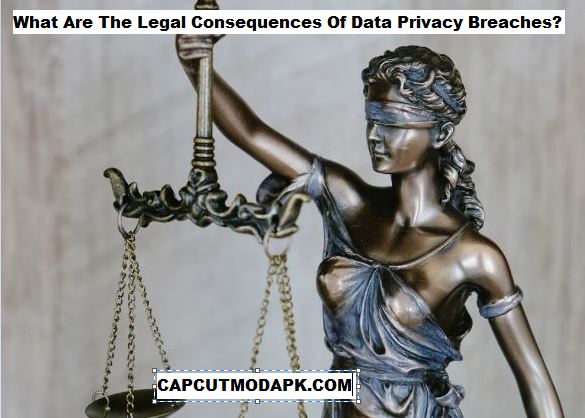What Are The Penalties For Non Compliance With Data Privacy Laws: Data privacy laws have become more stringent in recent years as governments around the world seek to protect individuals’ personal data. The European Union’s General Data Protection Regulation (GDPR) is one of the most well-known data privacy laws, but many countries have their own regulations that businesses must follow. Non-compliance with these laws can lead to severe penalties, affecting a company’s finances, reputation, and operations.
Understanding the penalties for non-compliance is crucial for businesses. If your company handles personal data, even indirectly, you need to know the risks of not following data privacy laws. The consequences are not limited to fines. There are also potential legal actions, reputational damage, and loss of consumer trust, which can be devastating for any business.
In this article, we will explore the penalties and consequences of non-compliance with data privacy laws. We’ll look at the GDPR specifically, but these principles apply to other data privacy laws globally as well. By understanding the risks, you can take steps to ensure compliance and protect your business from costly consequences.
Also, Read
How To Ensure GDPR Compliance For Small Businesses
What Steps Should I Take After A Data Breach At My Company?
What Are The Penalties Of Non-Compliance For GDPR?
The General Data Protection Regulation (GDPR) imposes strict penalties for businesses that fail to comply with its rules. The severity of the penalties depends on the nature of the violation, but they can be significant. The GDPR allows for fines up to €20 million or 4% of global annual turnover, whichever is higher. This means that large companies could face staggering fines if they fail to comply with data privacy regulations.
The fines are tiered based on the seriousness of the violation. For minor violations, such as failing to keep records of data processing activities, companies may face fines of up to €10 million or 2% of their global annual turnover. For more severe violations, such as failure to obtain valid consent for data processing or violating individuals’ rights to access their data, the penalties can be much higher.
In addition to financial penalties, businesses found in non-compliance may face other consequences, such as public reprimands and orders to stop processing personal data. This can be incredibly damaging to a company’s reputation and consumer trust. If the violation is serious enough, authorities can even impose temporary or permanent bans on processing certain types of personal data.
Are There Any Consequences For Data Privacy Violations?
Yes, there are serious consequences for data privacy violations, and they go beyond just financial penalties. One of the most immediate and significant consequences is reputational damage. In today’s digital age, consumers are increasingly aware of their data privacy rights and are more likely to avoid companies that mishandle their personal data. A data breach or failure to comply with privacy laws can quickly lead to negative media coverage, loss of customers, and a damaged reputation.
In addition to reputational harm, data privacy violations can lead to legal actions from affected individuals. For example, under the GDPR, individuals have the right to seek compensation if their personal data is mishandled. If a data breach results in harm, such as identity theft or financial loss, individuals can take legal action against the company responsible. This can lead to lawsuits, settlements, and further financial penalties, even if the company has already been fined by the regulatory authorities.
There are also regulatory consequences. Regulatory bodies have the authority to investigate and audit companies suspected of violating data privacy laws. This can lead to lengthy investigations, additional fines, and even criminal charges in extreme cases. Companies that fail to cooperate with regulatory investigations can face even harsher penalties, including increased fines or sanctions.
What Happens If You Don’t Comply With Data Protection?
Failing to comply with data protection regulations can have serious consequences, both for the business and the individuals whose data is compromised. The first consequence of non-compliance is likely to be a financial penalty. Depending on the severity of the violation, this penalty can range from a small fine to millions of dollars. In some cases, a company may even face a combination of financial penalties, such as fines and compensation claims from individuals affected by the data breach.
Non-compliance also exposes your company to significant legal risk. A business that fails to protect customer data can face lawsuits for damages caused by the breach. In many cases, individuals whose data is compromised can file a lawsuit to recover damages for emotional distress, financial loss, or identity theft. These lawsuits can add significant costs to a company, including legal fees and settlement costs.
Furthermore, if a company doesn’t comply with data protection laws, it risks losing consumer trust. Customers who feel their personal information is not being properly protected will likely take their business elsewhere. This loss of trust can be long-lasting, as it can take years to rebuild a reputation after a data breach or privacy violation. For some companies, this loss of consumer confidence can be even more damaging than the fines themselves.
What Are The Legal Consequences Of Data Privacy Breaches?

The legal consequences of data privacy breaches can be severe, particularly if the breach results in harm to individuals. Under data privacy laws like the GDPR, companies are required to notify affected individuals if their personal data has been compromised. Failing to notify individuals within a specified time frame, usually within 72 hours of the breach, can result in additional penalties.
One of the most significant legal consequences is the possibility of lawsuits from individuals affected by the breach. For example, under the GDPR, individuals have the right to seek compensation for damages caused by a data breach. If a company fails to protect personal data, and individuals suffer harm as a result, they can take legal action. This can lead to costly litigation, settlements, and reputational damage.
Companies may also face regulatory investigations, fines, and penalties from data protection authorities. Regulatory bodies have the power to conduct audits, issue fines, and enforce corrective actions to ensure compliance with data protection laws. The penalties for non-compliance can be severe, as mentioned earlier, and may include financial penalties, business restrictions, and even bans on data processing.
What Is The Average Fine For The GDPR?
The average fine for GDPR violations can vary depending on the nature of the violation and the size of the company. In general, the GDPR imposes two levels of fines: one for less serious violations and one for more serious violations. Minor violations, such as failure to maintain proper records or to implement basic security measures, can result in fines of up to €10 million or 2% of a company’s annual turnover, whichever is higher.
For more serious violations, such as not obtaining consent for data processing or violating individuals’ rights, the fines can be much higher. In extreme cases, the GDPR allows for fines of up to €20 million or 4% of a company’s global annual turnover, whichever is higher. This means that large companies can face multi-million euro fines for major data privacy breaches.
However, it’s important to note that the actual fines imposed can vary widely. Regulators take into account several factors when determining fines, such as the severity of the violation, the company’s cooperation with authorities, and the impact on individuals. Some businesses have received relatively small fines, while others have faced fines in the tens of millions of euros.
What Happens If You Don’t Report A Data Breach?
Under the GDPR and other data protection laws, companies are required to report data breaches to the relevant authorities within 72 hours of becoming aware of the breach. Failing to report a data breach within this time frame can lead to significant penalties, including fines and further regulatory action. The GDPR specifically states that failure to notify a breach can result in a fine of up to €10 million or 2% of the company’s global annual turnover, whichever is higher.
In addition to financial penalties, failing to report a data breach can also lead to reputational damage. If customers or stakeholders find out that a company failed to report a breach in a timely manner, it can damage the company’s credibility and trustworthiness. In some cases, companies may face lawsuits from affected individuals who claim that their rights were violated by the delayed reporting of the breach.
Reporting a data breach not only helps protect individuals’ rights but also demonstrates a company’s commitment to data security and transparency. By complying with the reporting requirements, businesses can minimize the legal and reputational risks associated with a data breach.
Conclusion
The penalties for non-compliance with data privacy laws are significant and can have far reaching consequences for businesses. From financial fines to legal actions and reputational damage, the risks of failing to protect personal data are serious. Whether you’re dealing with GDPR or other data protection laws, the penalties for non-compliance are designed to incentivize businesses to take data privacy seriously.
By understanding the potential consequences and proactively addressing data protection requirements, companies can reduce the risk of penalties and protect both their customers and their business. Taking steps to ensure compliance with data privacy laws not only helps avoid costly penalties but also builds trust with consumers, which is essential in today’s competitive market.


